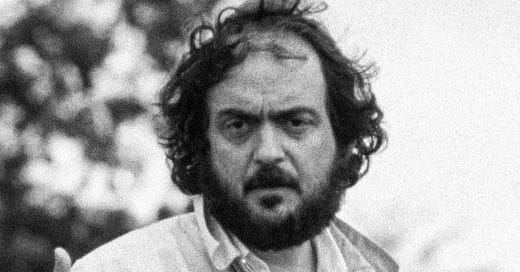Kubrick's Visionary Odyssey: Unpacking the Masterpiece that Redefined Cinema
Stanley Kubrick was undoubtedly one of the most influential and iconic directors in the history of cinema.
Stanley Kubrick was undoubtedly one of the most influential and iconic directors in the history of cinema. His impact on the film industry, as well as his unique artistic vision, is particularly evident in his groundbreaking work, "2001: A Space Odyssey." Released in 1968, this science fiction epic is not only a cinematic masterpiece but also a testament to Kubrick's immense talent and his enduring legacy as a director.
Kubrick was a visionary director who constantly pushed the boundaries of filmmaking. "2001: A Space Odyssey" is a prime example of his commitment to innovation. The film's special effects and production design were groundbreaking for their time, setting new standards for science fiction cinema. Kubrick's meticulous attention to detail, such as the realistic portrayal of space travel and the advanced technology, showcased his dedication to creating an immersive and believable future.
Kubrick's storytelling was often characterized by ambiguity and complexity, inviting audiences to engage on multiple levels. "2001" is a perfect illustration of this. The film is a visual and auditory spectacle, but it also delves into profound philosophical and metaphysical themes, including the nature of human evolution and the potential for artificial intelligence. Kubrick's ability to create layered narratives and challenge viewers' intellect made him a director of intellectual heft.
Kubrick was a master of cinematic techniques, which he used to craft visually stunning and emotionally resonant films. In "2001," his use of long takes, practical effects, and innovative cinematography techniques added to the film's grandeur and immersive quality. His signature use of classical music, particularly the use of Johann Strauss II's "The Blue Danube," for the space travel scenes, demonstrated his prowess in combining music and imagery to create unforgettable cinematic moments.
Kubrick was renowned for his meticulous attention to detail, from set design to costume choices. In "2001," the precision in recreating the space environment was unparalleled. Every button, switch, and piece of technology felt authentic, contributing to the film's immersive quality. Kubrick's perfectionism is evident in every frame, making his work stand out.
Kubrick's impact on the film industry is immeasurable. His approach to storytelling and filmmaking has inspired countless directors, writers, and artists. "2001: A Space Odyssey" not only redefined the science fiction genre but also challenged the conventions of cinema. The film's success and influence opened the door to more ambitious and thought-provoking science fiction films in the following decades.
Kubrick was known for his unwavering commitment to artistic independence. With "2001," he had full creative control over the project, including its budget and distribution. This independence allowed him to bring his bold and unconventional vision to life without external interference, a rarity in Hollywood. It reflected his determination to create uncompromising and thought-provoking cinema.
"2001" is notable for its extensive use of nonverbal storytelling. Kubrick often eschewed dialogue in favor of visual and auditory elements to convey the narrative and themes. This approach required audiences to actively engage with the film, interpreting its symbolism and meaning. His ability to tell a complex story through visuals and music alone was a testament to his directorial prowess.
2001: A Space Odyssey has left an indelible mark on popular culture. Its iconic imagery, such as the monolith and the space baby, remains recognizable and influential even decades after its release. The film's themes and imagery continue to be referenced and parodied in various forms of media, showcasing Kubrick's enduring impact on the cultural zeitgeist.
Kubrick was a master of sound design, and "2001" is a prime example of his expertise in this area. The film's use of classical music, including Richard Strauss's "Also sprach Zarathustra" and György Ligeti's avant-garde compositions, contributed significantly to its emotional impact and atmosphere. The marriage of visuals and music in "2001" set new standards for the use of sound in cinema.
One of Kubrick's hallmarks as a director was his ability to spark intense debates and discussions among viewers. "2001" is a prime example, with its enigmatic ending and open-ended narrative inviting various interpretations. The film's ambiguity and depth continue to be analyzed and debated, making it a perennial subject of academic study and film criticism. Kubrick's willingness to challenge audiences to think deeply about his work added to his stature as a director.
Stanley Kubrick's significance as a director can be best understood through his seminal work, "2001: A Space Odyssey." This film showcases his visionary approach, innovation, storytelling prowess, mastery of cinematic techniques, and unwavering commitment to detail. Kubrick's impact on the film industry and his ability to provoke intellectual and emotional engagement with his audience cement his status as one of the greatest directors in the history of cinema. His legacy endures through his body of work, inspiring generations of filmmakers and continuing to captivate audiences worldwide.










